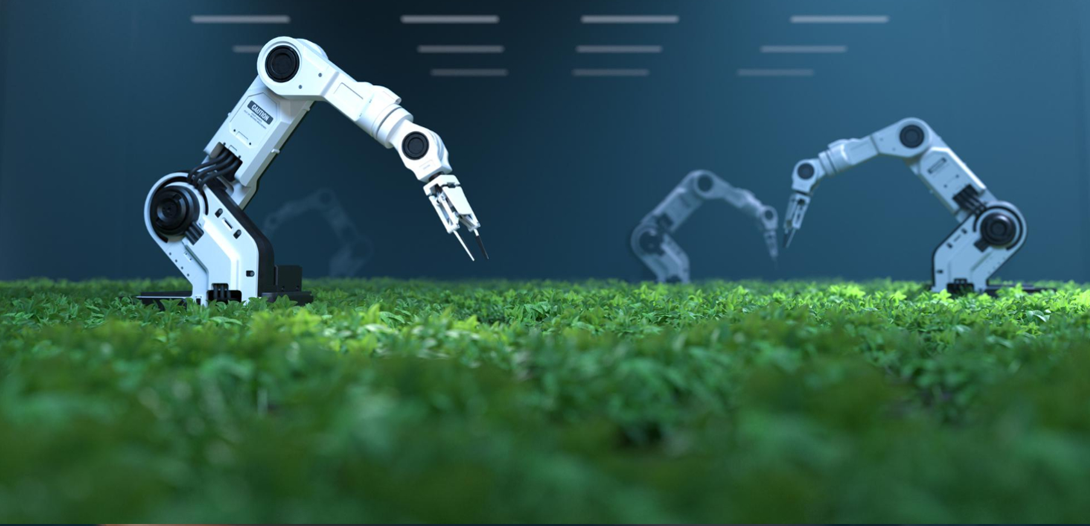The Promise and Perils of AI-Driven Sustainability


Artificial intelligence (AI) has emerged as a powerful tool for tackling some of the world’s most pressing sustainability challenges. From improving energy efficiency and optimizing resource allocation to monitoring environmental impacts and informing climate policy, AI holds immerse potential to revolutionize our efforts towards a greener, more prosperous future. In this blog post, we will explore the exciting possibilities of AI-driven sustainability, which also addressing the potential challenges and responsibilities associated with transformative technology.
The Power of AI in Sustainability
AI-driven solutions can significantly enhance sustainability efforts across a broad range of sectors. Examples include:
•Smart Grids: AI can optimize the distribution and consumption of energy power grids, reducing waste and improving efficiency. By analyzing data on energy supply and demand, AI algorithms can help balance the grid and make it more resilient.
•Precision Agriculture: AI-powered tools can optimize crop management and resource allocation, minimizing waste and maximizing yields. For example, AI can be used to predict that best time to plant, irrigate, and harvest crops based on weather patterns, soil conditions, and other factors.
•Smart Building: AI can automate heating, cooling, and lighting systems to minimize energy consumption and reduce greenhouse gas emissions. By using machine learning algorithms, AI can learn from occupants preferences and behaviors to optimize energy usage while maintaining comfort levels.
•Environmental monitoring: AI can analyze vast amounts of data from satellites, sensors, and other sources to monitor and predict environmental changes, enabling timely interventions and informed decision-making. For example AI can be used to detect deforestation, track wildlife populations, and monitior air and water quality.

These examples demonstrate the immense potential of AI technology to drive sustainability efforts and contribute to a greener, more prosperous future.
While AI presents wealth of opportunities for advancing sustainability, it is essential to acknowledge and address the potential challenges and responsibilities associated with its use.
The Responsibilities of AI in Sustainability As AI technology becomes more integrated into sustainability efforts, it is crucial to consider the potential risks and ethical implications. Some key considerations include:
•Bias adnfairness: AI systems can perpetuate and even amplify existing bias and inequalities if not developed and deployed responsibly. It is essential to ensure that AI-driven sustainability solutions are designed with fairness and inclusivity in mind.
•Privacy and security: The use of AI often involves collecting nad analyzing large amount of data, which raises privacy and security concerns. It is vital to implement robust data protection measure and transparency in AI-driven sustainability initiatives.
•Accountability: As AI systems become more autonomous, questions about accountability and responsibility will rise. Establishing clear guidelines and regulations for AI use in sustainability is crucial to that its benefits are maximized while minimizing potential risks.
Global Economic Impact of AI-Driven Sustainability Initiatives:
The global economic impact of AI-driven sustainability initiatives can be significant and far-reaching, ultimately improving people’s everyday lives in various ways:
1.Job Creation: The development and implementation of AI technologies for sustainability purposes can create new jobs in fields such as data science, software engineering, and environmental consulting. These opportunities can lead to economic growth and higher employment rates, benefiting individuals and communities.
2. Cost Savings AI-powered solutions can help reduce energy consumption, optimize resource allocation, and minimize waste, leading to significant cost savings for businesses and households. These savings can translate into increased disposal income, enhancing people financial well-being.
3. Improved public health: By monitoring and mitigating environmental impacts, AI-driven sustainability efforts can help improve air and water quality, contributing to better public health outcomes. This can lead to reduced healthcare costs and improved quality of life for individuals and communities.
4.Enhanced food security: AI-powered precision agriculture can optimize crop yields and resource use, ensuring a more stable and sustainable food supply. This can help reduce food insecurity and hunger, particularly in vulnerable populations.
5. Innovation and Investment oppurtunities: The growth of the AI-driven sustainability sector can attract increased investment, driving innovation and economic growth. This can create new markets and opportunities for businesses and entrepreneurs, further boosting economic development.
Overall, the global economic impact of AI in sustainability can lead to amore prosperous and equitable world, with tangible benefits for people everyday lives.
GEProject Tech Lab, your startup accelerator hub. We offer resources, expert guidance, and state-of-the-art facilities to elevate your business.
Copyright© 2025 GEProject, All rights reserved.